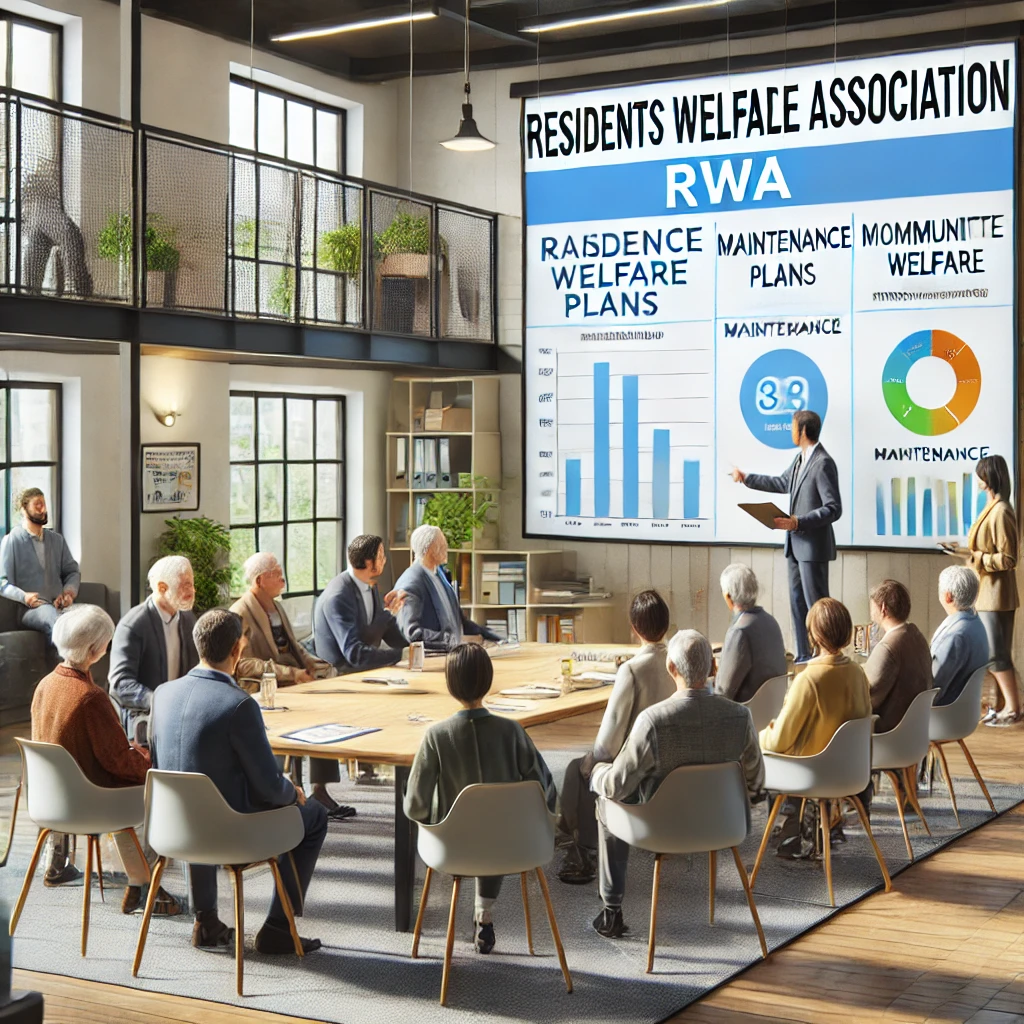Resident Welfare Associations (RWAs) play a vital role in maintaining and managing residential communities. Whether referred to as "Residents Welfare Association" or "Resident Welfare Association," these organizations are essential for fostering harmony, addressing common concerns, and ensuring the smooth functioning of shared facilities.
What is a Resident Welfare Association (RWA)?
A Resident Welfare Association is a non-profit body formed by residents of a locality or housing society to address collective issues and oversee the welfare of the community. The primary focus of RWAs is to create a sense of community while ensuring efficient management of resources and adherence to civic rules.
RWAs operate under the guidelines of state-specific laws and are typically registered under the Societies Registration Act, 1860. They act as a bridge between residents and local authorities, ensuring smooth communication and efficient resolution of issues.
Key Roles of a Residents Welfare Association
-
Management of Common Areas:
RWAs oversee the upkeep of common spaces such as parks, gyms, swimming pools, and clubhouses, ensuring they are maintained for all residents. -
Financial Administration:
They collect maintenance fees and allocate budgets for utilities like electricity, water, security, and waste management. -
Conflict Resolution:
The association serves as a mediator to resolve disputes between residents or with external parties, fostering a peaceful environment. -
Representation:
The Resident Welfare Association represents the community in discussions with local authorities, such as municipal bodies or police, to address issues like road repairs, water supply, or safety. -
Community Building:
Organizing events such as cultural programs, health camps, and awareness drives helps build a sense of unity among residents.
Why Join a Residents Welfare Association?
-
Collective Decision-Making:
Being part of an RWA allows residents to contribute to decisions that directly impact their living conditions. -
Legal Support:
RWAs can provide legal backing in case of disputes or issues involving external parties like builders or contractors. -
Improved Quality of Life:
Through better management of resources and timely resolutions of issues, RWAs ensure a higher standard of living.
How to Form or Register a Resident Welfare Association?
-
Gathering Residents:
A group of residents with shared interests comes together to form an association. -
Drafting a Constitution:
Prepare a memorandum and bylaws that define the RWA's objectives, rules, and structure. -
Registration:
Register the association with the Registrar of Societies by submitting the necessary documents, including the memorandum, bylaws, and details of executive members. -
Electing a Committee:
Members elect an executive committee responsible for managing the RWA's operations.
Challenges Faced by Residents Welfare Associations
-
Conflict of Interest:
Disagreements among residents may hinder decision-making. -
Funding Issues:
Inadequate collection of maintenance fees can impact the association’s ability to function effectively. -
Legal Hurdles:
Navigating regulations and compliance can be challenging without proper legal support.
Conclusion
Residents Welfare Associations are a cornerstone of organized community living. They ensure that residents' voices are heard, problems are addressed, and shared resources are managed effectively. By actively participating in or supporting your Resident Welfare Association, you can contribute to a harmonious, well-maintained, and vibrant community.
Whether you're exploring the role of a "Residents Welfare Association" or a "Resident Welfare Association," the impact of these organizations on enhancing community living cannot be overstated.
